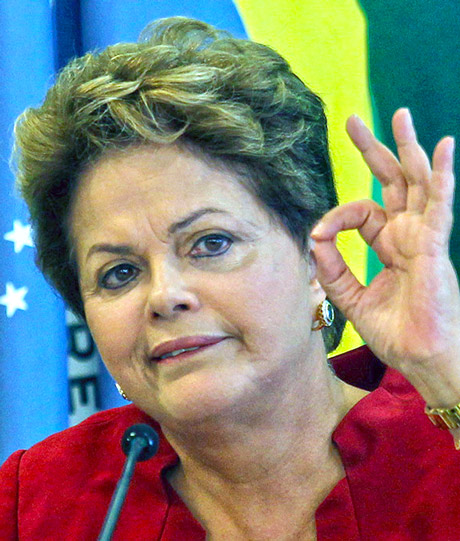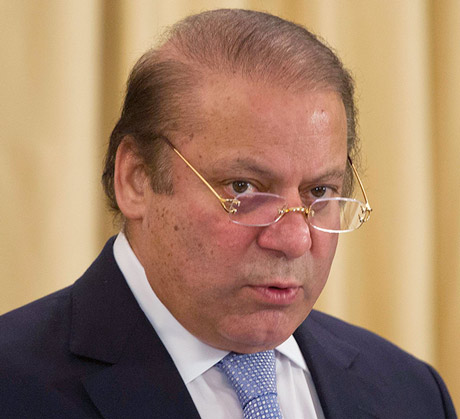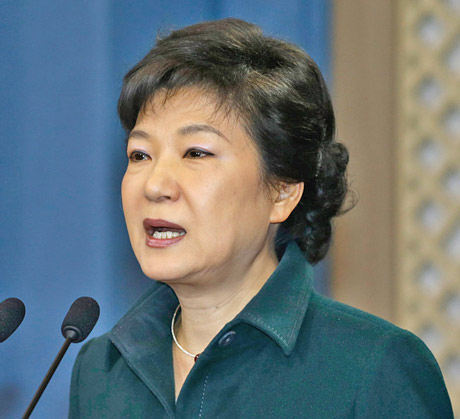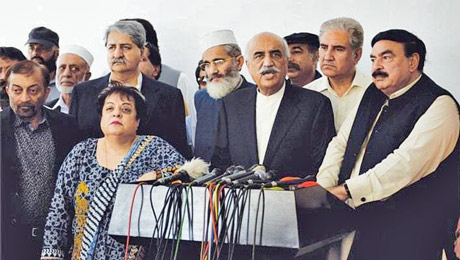In the News
Unscrupulousness, double-dealing, fraud — corruption and wrongdoing have toppled a number of world leaders over the last year. Here's a few of them.

Brazil
Brazil’s president, Dilma Rousseff, was impeached last year for allegedly manipulating government accounts ahead of an election there. She was thrown out of office, specifically, for moving loans from state banks between different government departments without congressional approval — illegal under Brazilian law.
Her successor, Michel Temer, is also involved in a corruption scandal, for allegedly taking bribes from the world's largest meatpacker, a claim he denies.

Iceland
Former prime minister Sigmundur David Gunnlaugsson stepped down in 2016 after he was confronted by leaked documents from the Panama Papers dossier that showed that he and his wealthy wife had set up a company in the British Virgin Islands to shelter their money offshore. It led to accusations of a conflict of interest because the company in question had a multimillion-dollar claim on Iceland's failed banks. Iceland's currency, stock market and several banks collapsed during the 2008 financial crisis.

Pakistan
Pakistan's Supreme Court removed Prime Minister Nawaz Sharif from office over corruption charges and Attorney General Ashtar Ausaf said Sharif was "disqualified for life," although the court did not explicitly ban him from running again. The court ordered that criminal charges be filed against him and his family. His removal stems from revelations, also in the Panama Papers, that his family owned offshore accounts that enabled them to buy expensive property in London their incomes would not allow.

South Korea
Ex-president Park Geun-hye became the country's first democratically elected leader to be forced from office when, earlier this year, she was impeached over an influence-peddling scandal. She was accused of letting a close confidante intervene in government affairs and have access to classified information. Hundreds of thousands of South Koreans, angered by a perceived collusion between the country’s political and business elites, held protests to demand her resignation. She is being tried separately on a string of criminal charges, including bribery and discrimination.
PM's office

In the wake of Nawaz Sharif's disqualification in the Panamagate case, President Mamnoon Hussain had called a session of the National Assembly (NA) for August 1 for the election of a prime minister.
The PML-N's nominee, Shahid Khaqan Abbasi, who is currently facing a Rs220 billion corruption inquiry being carried out by the National Accountability Bureau, submitted his nomination papers to NA Secretary Jawad Rafiq Malik on Monday.
Speaking to the media after submitting his nomination papers, Abbasi, who was chosen by the party unanimously, said that he would continue with the policies of ousted prime minister Nawaz Sharif over the period of his tenure.
According to his party's strategy, Abbasi will vacate his seat to pave the way for Punjab Chief Minister Shahbaz Sharif to take the chief executive's position if and when the latter is elected to the National Assembly.
Expressing confidence that he would succeed, Abbasi added that the cabinet members would be decided by the party on Monday.
Meanwhile, the opposition failed to agree on one nominee, with each party throwing its weight behind different candidates who also submitted their nomination papers.
Pakistan Tehreek-i-Insaf (PTI) put forward Awami Muslim League (AML) leader Sheikh Rashid's name, but could not gain the support of any other party apart from Pakistan Muslim League-Quaid.
The PPP said it would not back Rashid because of PTI chief Imran Khan's criticism of Asif Ali Zardari in a speech a day earlier. Khan had accused Zardari of corruption and promised to pursue the former president in corruption cases.
PPP instead back Khursheed Shah and Naveed Qamar, Muttahida Qaumi Movement chose Kishwar Zehra, while Jamaat-i-Islami (JI) suggested the name of Sahibzada Tariqullah.
Defending the party's decision to nominate Sheikh Rashid, PTI leader Shah Mehmood Qureshi said that the AML chief "deserved the honour" of becoming PM as he fought the Panama case "on both political and legal fronts" along with PTI chairman Imran Khan and JI Ameer Sirajul Haq.
However, since Haq is a member of the Senate and Imran Khan is not a candidate, the party decided on Rashid's name.
Qureshi and opposition leader Khursheed Shah both expressed hope that the opposition parties would continue to make efforts to agree on a single candidate.
To advertise in ICW call
Call 905-738-5005